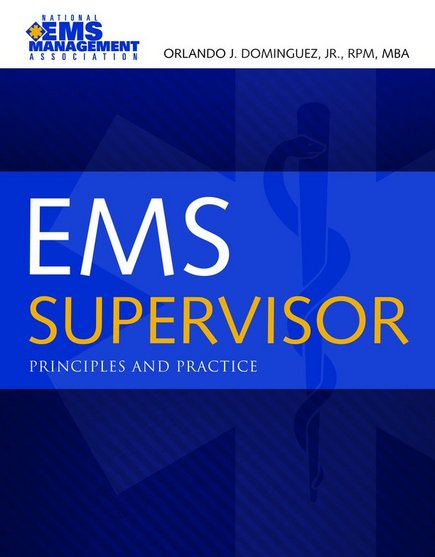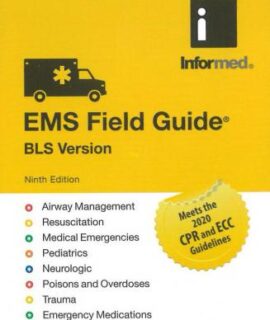EMS Supervisor: Principles and Practice
$99.95
Emergency medical services (EMS) personnel are thoroughly trained and educated in patient care. They put their knowledge and skills into action at a moment’s notice to treat patients’ illnesses and injuries and to save lives. But what happens when EMS practitioners advance to leadership positions and take on responsibilities beyond patient care? EMS Supervisor: Principles and Practice provides the new or aspiring EMS officer guidance in confronting common challenges faced by those in EMS managerial leadership roles. As an EMS officer, you will be responsible for operations and administration, and the ability to manage and lead will be critically important.
EMS Supervisor: Principles and Practice offers an introduction to creating and maintaining a successful EMS organization through chapters on managerial leadership, team building, professional communications, quality improvement, customer service, strategic planning, crisis management, and budgeting. Establishing knowledge and authority in these areas is crucial to success as an EMS officer.
The concept of five key business priorities (5 BPs), reinforced in each chapter, underlines the primary considerations for EMS officers taking on new responsibilities:
* People
* Strategic objectives
* Financial management objectives
* Learning objectives
* A culture of quality
Additional features highlight managerial leadership tips, examples of management decisions in the business world outside of EMS, and fictional case studies to stimulate discussion of how EMS officers can resolve challenging situations.
EMS Supervisor: Principles and Practice meets the course outcomes for the National Fire Academy’s Fire and Emergency Services Higher Education (FESHE) Emergency Medical Services Curriculum Management of Emergency Medical Services course. Published in partnership with the National EMS Management Association.
Features & Benefits
The textbook addresses the course outcomes for the FESHE Management of EMS course and will:
* Discuss the basic philosophy, organization and operation of injury prevention and risk-reduction programs.
* Compare and contrast management and leadership.
* Provide practical examples of the principles of customer service in EMS.
* Apply the technique for conducting an effective performance appraisal.
* Identify strategies to optimize reimbursement for EMS services.
* Apply quality improvement techniques to various aspects of EMS operations.
* Define due process and apply the principles of a progressive disciplinary program.
* Define ethical behaviors and the decision-making strategies when faced with an ethical dilemma.
Categories
- Firehall Mall
- First Alert Smoke & Carbon Monoxide Alarms
- Coming Soon – Pre-Order
- ATS Online Training
- NFPA Standards & Fire Codes
- Ontario Codes
- Fire Safety & Public Education Materials
- Fire Service & Rescue
- Fire Investigator
- Fire Inspection & Code Enforcement
- Apparatus Driver/Operator
- Fire Protection/Systems & Apparatus
- Vehicle Extrication/Highway Safety
- Hazardous Materials
- Industrial / Facility
- Building & Life Safety
- Fitness / Wellness / Health & Safety
- Wildland
- Management / Leadership / Advancement
- Firefighter Entry Level
- Emergency Medical Service
- Emergency Management/Terrorism
- Firefighting Novels/History/Memoirs
- Deals & Steals





